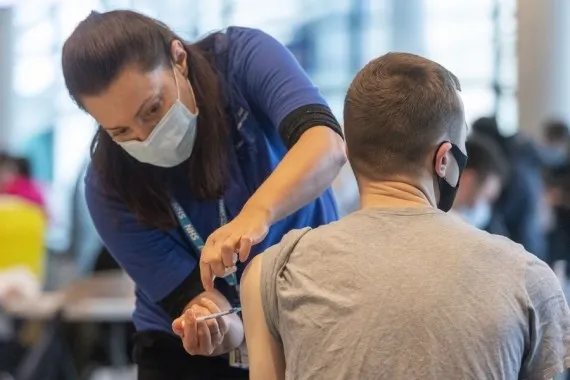Tailored Preventative Measures Can Alleviate Pressures on UK NHS: Study

Synopsis
Key Takeaways
- Personalized health records are crucial for tracking individual health data.
- The Physiology Passport aims to integrate diverse health metrics.
- Proactive healthcare could lessen long-term costs.
- Focus on preventative care rather than reactive treatment.
- Enhanced public health outcomes through tailored services.
New Delhi, Jan 14 (NationPress) A customized and preventative strategy may be essential for facilitating timely interventions and ensuring early treatment this winter within the UK NHS, as detailed in a report released on Tuesday.
The document, authored by prominent scientific organizations The Physiological Society and PHG Foundation, suggests an innovative, data-centric approach aimed at revolutionizing healthcare delivery.
It emphasizes that a personalized and preventative model could alleviate both the strain on healthcare systems and the long-term expenses associated with them. This strategy can also address the escalating challenge of managing non-communicable diseases, such as heart disease, stroke, cancer, and diabetes, which are increasingly prevalent among the UK’s senior demographic.
The proactive initiative, referred to as ‘Physiology Passport’—set to be unveiled in the UK Parliament today—will utilize existing patient records to monitor and gather comprehensive health data (including blood pressure, weight, cholesterol, and blood sugar levels) for individuals throughout their lives.
This information will be securely stored in their personalized health record. The aspiration is to eventually integrate this data with information from various sources, such as wearables and medical assessments, to create a comprehensive overview of a person’s health.
“The NHS faces significant challenges, and it is evident that we need more proactive and cohesive healthcare solutions that transition the focus from merely treating illnesses to preventing them. The proposed Physiology Passport would centralize an individual’s physiological data within the health system, facilitating earlier detection, personalized care, and fair access to preventative measures,” stated Dariel Burdass, Chief Executive of The Physiological Society.
The Physiology Passport is founded on precision medicine, a healthcare methodology that aims to assist healthcare providers and researchers in predicting treatment and prevention strategies more accurately by taking into account the individual’s physiology, environmental context, lifestyle, geographic location, and cultural factors.
An integrated, physiology-focused personalized medicine approach could enhance public health outcomes by delivering healthcare services tailored to individual needs rather than employing a generic model.
The goal is to improve health outcomes, ease the burden on the healthcare system, and encourage individuals to lead healthier lives by focusing on the early detection of health changes; empowering individuals to take charge of their health; supporting healthcare providers; and facilitating proactive care.
The report also outlines several recommendations, including transitioning the healthcare model from reactive disease management to proactive prevention, creating a cohesive health data framework, embracing digital health innovations, and adopting community-based care models.
“While molecular biomarkers such as genetics have proven beneficial in managing numerous diseases, the dynamic insights offered by various physiological biomarkers will supplement, enhance, and contextualize genetic data,” remarked Dr. Laura Blackburn, Head of Science at the PHG Foundation.
The experts highlighted that the Physiology Passport presents a unique opportunity to amalgamate diverse biomarkers—specific indicators that reflect biological processes in health and disease—to bolster personalized prevention.










